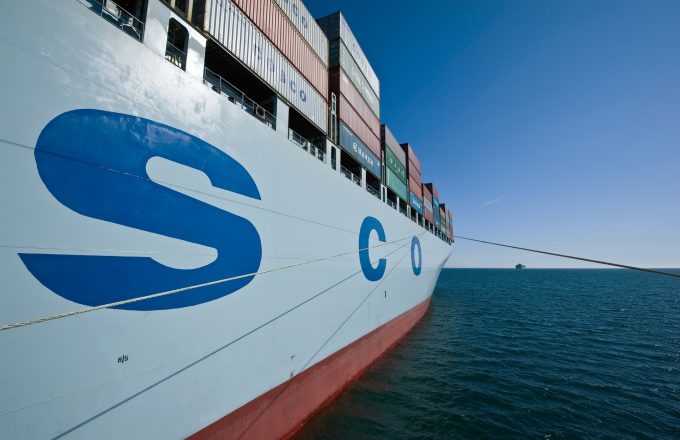India-Pakistan 'tit-for-tat' cargo ban sparks sudden supply chain shocks
India and Pakistan have banned each other’s cargo from transiting their ocean gateways, following the ...

This is a really interesting blog from Splash 24/7, examining the challenges in Maersk’s stated ambition to become an integrated logistics provider. Pointing out that the group essentially has conflicts of interests in so doing (to offer the lowest cost possible, does it squeeze margins on its terminal arm or the shipping line?), the author, Quintiq’s Kris Kosmala, argues a different outcome is more likely. He suggests that Cosco is in fact better placed to become the first shipping line ...
Crew saved as MSC box ship, hit by 'monsoon' off Indian coast, sinks
Carriers react quickly to transpac demand surge, but rates remain muted
ONE opts for South Korean newbuilds to avoid hefty US port fees
New services and reinstated blanked sailings boost transpacific capacity
Congestion fear as US west coast ports brace for transpacific cargo surge
News in Brief Podcast | Week 21 | GRIs and European port congestion
$2.1bn E2open purchase will 'catapult WiseTech into a different dimension'
Air forwarders face financial uncertainty – but 'there are opportunities'


Comment on this article
gunther ginckels
March 09, 2018 at 3:32 pmThe analysis is correct. The take-over of Sealand in 1999 doubled the number of terminals being part of the “Line” not handling competition showing an average asset utilisation of less than 40% and no view on the financial performance of each individual terminal. APM Terminals as an independent was born. The history of DAMCO (MCCC, Maersk Logistics etc…) is different where the “Line” people always considered this a “Forwarders” activity with little affection. Placing these activities in the market was at the time a necessary move resulting however in a widening gap between internal expectations and deliverables. Handing over “Land Based Activities” to APM Terminals was than a mistake as they had no clue what to do with it and started – under pressure of bottom line targets – selling-out inland terminals, railway companies and haulage units. Consolidating these 3 business units is now the next necessary move and long due. It will cost but they do have the cash in the draws ready to be used. Key to this is the ICT platform where Maersk is partnering with Microsoft and IBM. That is a very strong alliance. Sure COSCO has the potential to be a key important top-3 player. However unless they have a structure and business model offering visibility into the economics of the respective logistic elements in the chain, they could be in for some unpleasant surprises. True, the OBOR project is an important and brilliant move. The real problem is that “all things being equal” is not applicable to this thesis. COSCO is not obliged to play according to the “Free Trade” economic rules – Xi Jinping will write a cheque and ensures that all things will not be equal.